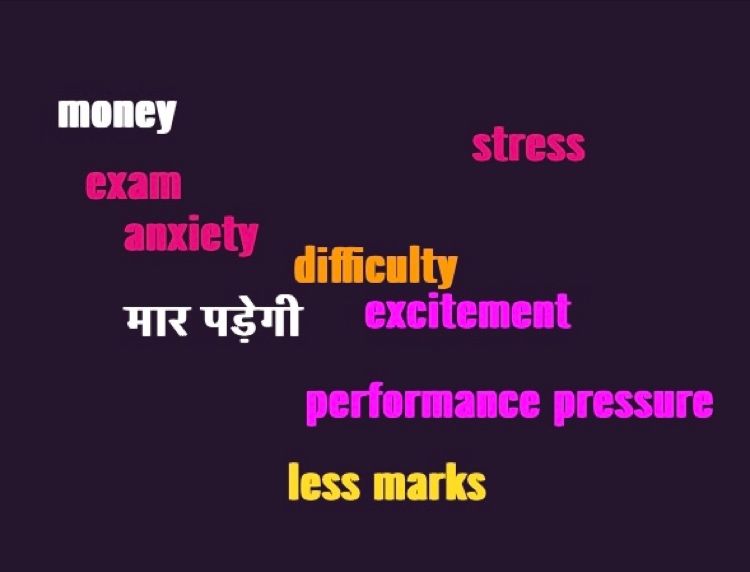Pahoti’s solution to student anxiety
Pahoti’s solution to student anxiety

- Perceived student concerns from discussions:
-
- Given the extremely competitive nature of entrance examinations, the stress and pressure to prepare well and clear the exam is high. This is coupled with the need to manage school based curriculum alongside.
- The jump from grade X to XI is significant, and the task of entrance preparation/ attending coaching classes is a massive addition. Hence, the challenge increases to a level which perhaps the students find very difficult to adjust to.
- Time Management: Balancing coaching and school, personal life and social commitments is challenging
- Students’ relationship with parents– type of interaction, motivation, pressures – are these factors affecting their morale? (Judgment, micromanagement, telling students how to prepare). The role parents should/can play in this scenario remains unclear.
- There seems to be a lack of expression or low self confidence when it comes to clearing doubts from teachers and sharing struggles. The cause of this hesitation is unclear but perhaps stems from negative self evaluation at the students end (“this is a silly question”/ “I should know this, this is not something one needs to ask!”). This also points towards unhelpful thinking patterns and exaggerates low self esteem.
- Lack of motivation
- Lack of failure resilience (how to prepare if you fail?)
- Concentration issues due to personal awareness levels, too many tasks, stress and managing people’s expectations.
- Proposed solutions: Way forward
- A small focussed group discussion with the students to understand better their narrative, challenges, stresses and their perception of success and failure
- An online assessment to gather the larger student group sentiment
- A Peer Support system: Online forum to fill in the gap of asking teachers everything as well as gaining motivation by being in touch with students with similar goals and struggles (for example, students may discuss their problems with each other first, solve some on their own and then due to the peer support, have confidence/courage to ask teachers/LC about their challenges)
- Individual psychological support with students experiencing extreme stress/ self doubt due to academic pressure. This aims to target:
-
- Identifying negative core beliefs and cycle of self-defeating thoughts
- examining factors leading to low self confidence, motivation and performance and addressing them
- achievable routine scheduling
- Identifying anxiety
- Core beliefs and cognitive distortions- (to help resolve hesitation, failure and self judgment)
- Healthy coping techniques & relaxation strategies- (stress management, resilience)
- Concentration improvement techniques
- Time management techniques
- Effective study techniques
- Perhaps adding a module on SMART (Specific, Measurable, Achievable, Relevant, and Time-Bound) goal setting aids the students in setting expectations in a realistic manner and achieving desired results.
Search
Categories
- Anxiety (1)
- Beliefs (1)
- Breath observation (1)
- Change (1)
- Compassion (1)
- Concentration (6)
- Disease (1)
- Disorder (1)
- Emotions (8)
- Empathy (1)
- Exam anxiety (1)
- Feelings (4)
- Happiness (1)
- Learning (1)
- Limitations (1)
- Logic (1)
- Meditation (5)
- Mental disorders (4)
- Mindfulness (10)
- Narcissism (1)
- OCD (1)
- Pleasing others (1)
- Psychiatry (1)
- Python tools (1)
- Resilience (2)
- School (1)
- Self view (1)
- Social support (1)
- Speed (1)
- Student (2)
- Students (1)
- Teens (1)
- telehealth (1)
- therapy (1)
- Thoughts (6)
- Vipassana (3)
Latest Posts



